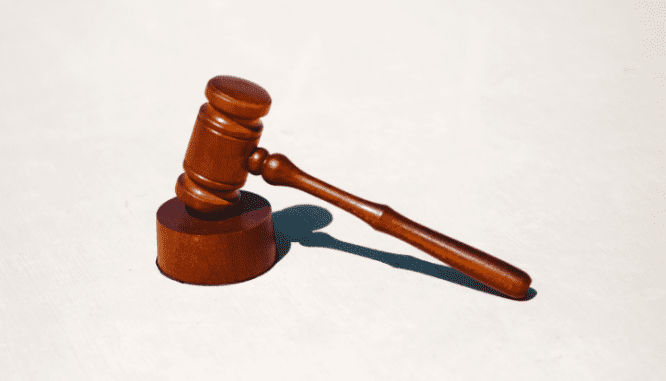Selling FSBO? Tally Your Closing Costs Without a Realtor
- Published on
- 5 min read
-
 Lori Lovely Contributing AuthorClose
Lori Lovely Contributing AuthorClose Lori Lovely Contributing Author
Lori Lovely Contributing AuthorLori Lovely edited the Real Estate Home section for the Indianapolis Star and covered the annual Dream Home construction and decor for Indianapolis Monthly magazine. She has written guides for selling houses and more.
At HomeLight, our vision is a world where every real estate transaction is simple, certain, and satisfying. Therefore, we promote strict editorial integrity in each of our posts.
If you’re selling For Sale By Owner, you’ll save on the listing agent’s commission. Other than that, you’re on the hook for the same closing costs as any other seller. Closing costs without a Realtor® typically average 1% to 7% of the final sale price.
Mandatory costs include a long list of fees and taxes from involved parties such as the local and state government and mortgage lenders. Additional closing costs may include any seller concessions, attorney fees, and the buyer’s agent’s commission.
Beyond these closing costs, FSBO sellers cover expenses normally included in a listing agent’s commission, such as marketing costs. All and all, FSBO sellers don’t save as much money on their home sale as you might expect — just one reason why only 8% of sellers chose to sell their home without a real estate agent in 2020.
We’ll breakdown FSBO closing costs line by line to prepare you for the sticker shock. Our analysis includes data from nationwide studies and surveys, government revenue websites, and on the ground insight from top real estate agent, Jay Pitts, who works with 72% more single-family homes than the average Louisville, KY, agent.

You’re still likely on the hook for the buyer’s agent commission
The national average real estate agent commission is 5.8%, though the percentage may vary slightly from market to market. The listing agent and the buyer’s agent split the commission at the close of the sale.
When you sell your home without a Realtor®, you save on the commission you would pay a listing agent. However, if you sell your home to a buyer represented by an agent, you’re still likely on the hook for the buyer’s agent commission (2% to 3% of the sale price), as this cost is customarily paid for by the seller.
“A great percentage of buyers are represented by agents. Some sellers attempt to waive the fee and sell direct, but it doesn’t go well. First-time and infrequent buyers are not comfortable with the process without a broker,” Pitts observes.
Closing costs without a Realtor®
There’s a laundry list of closing costs a seller is saddled with, regardless of if they sell their home with or without a real estate agent. While closing costs for sellers vary state to state, they typically average 1% to 3% of the final sale price — that’s excluding any agent commission. Here’s an overview of the most common closing costs for sellers without a Realtor®:
Escrow fees: Typically split between buyer and seller, escrow fees cover property tax payments paid in advance to the lender to hold in escrow. Escrow generally costs 1% to 2% of the final price, so sellers can expect to pay 0.5% to 1% of the sale price in escrow fees.
Title fees: These fees include a title search to verify that the seller owns the property, and without any conflicting liens. Depending on the sale price and the location, title fees can range from $300 to $1,500.
Reconveyance fees: Once your mortgage is paid off, you’ll have to obtain a reconveyance deed to prove it — typical fees for this range from $50 to $65.
Recording fees: After obtaining a reconveyance deed, the seller must have it recorded, usually at the county recorder’s office. Some municipalities include recording fees in the transfer taxes, while others charge them separately. The cost differs from county to county. It could be as low as $15, or it could start at $60 for the first page, with an additional dollar or two for every page after that.
Transfer taxes: These taxes are imposed by the city, county, or state to transfer title and register change ownership of the property. They are either calculated as a percentage of the sales price or as a flat fee. See our state-by-state guide to transfer taxes for a local estimate.

Hold on: Some sellers pay these closing costs too
Depending on your home sale, you may owe additional closing costs, such as the following:
Attorney fees
If you have an attorney represent you at closing, you’ll pay for the attorney fees. An attorney may charge by the hour — $150 to $350 an hour is standard according to Thumbtack), or they may charge a flat fee for outlined services such as preparing closing documents.
“Sometimes closing attorney’s fees are split. But a FSBO seller must pay wire fees,” Pitts says. Sellers are usually responsible for the cost of closing document preparation, as well.
Note that some states require a real estate attorney to be present at closing, whether you have an agent or not. See this state by state guide for details.
Seller concessions
Buyers may negotiate a financing concession, in which the seller pays part or all of the buyer’s closing costs. Often, a buyer negotiates for concessions, so they owe less in cash at the time of closing.
“At 3% of the sales price, that’s a substantial amount,” Pitt notes.
Lenders set limits on seller concessions depending on the loan type, whether the home is a primary or secondary residence and the size of the down payment. For example, the Department of Housing and Urban Development caps seller concessions for FHA loans at 6% of the sale price.
Mortgage pay off
You’ll have to pay off the remainder of the loan on your home. To find out how much you owe, contact your lender or servicer and request your payoff amount. The payoff amount is the total you’ll have to pay to satisfy the terms of your mortgage, including any interest you owe until the day you plan to pay your loan in full.
Holding costs
Expect to cover holding costs, or carrying costs, in between the time you accept an offer and the sale closes (typically 30 to 45 days). The seller continues to pay the monthly mortgage payment, taxes, insurance, HOA dues, and utility bills during that time.

FSBO fees: You’ll spend some of your 3% commission savings
Sure, as a FSBO seller, you save on the listing agent commission, but there are hidden fees in doing it yourself. Discounting the value of your time, expect to shell out for the following costs that are normally included in an agent’s commission:
Home appraisal
To help set a listing price, FSBO sellers often hire an appraiser to determine the home’s fair market value, based on comparative properties, or “comps.” Expect to pay between $200 and $600 for an appraisal. The national average is around $335, but the actual cost will depend on your home’s size, property type, and location.
MLS listing fee
If you want to get your listing in front of buyers, you need to get it on the MLS. 9 in 10 sellers listed their homes on the MLS; it’s the number one listing source and auto-syndicates your property details to the major online listing sites. You can pay a limited-service real estate agent to put the listing up for you or go through a flat-fee MLS listing service for $50 to $500.
Professional listing photos
Don’t expect buyers to take your listing seriously if all of the photos were shot on your smartphone. Pay for a professional real estate photographer to take photos and videos for around $350 to $650.
Digital and physical advertising
You can stick a sign in your yard and place a free ad on Craigslist, but to reach a broader audience of buyers, you’ll need to spend some money. At the very least, you’ll need signs, brochures, some classified ads, and perhaps some paid ads on social media. The low end for marketing runs from $50 to $200. There is no top end; the sky’s the limit.
Pre-listing home inspection
By presenting the buyer with a completed pre-listing inspection report form, you can allay some concerns and save time on the sale process. For an average cost of just over $300, an inspection is well worth the cost for FSBO sellers.
Property survey
For the same reasons mentioned above, a property survey can grease the wheels of a sale. The cost of a survey depends on the size of your property and its location, but Angie’s List calculates the national average at $550.
Open house expenses
The price of an open house varies widely, depending on where you live and how elaborate you want to go. Will you offer food and drinks? Will there be staging, decorations, or other attractions? According to the NAR, only 4% of buyers visit open houses, but it’s worth the effort to help promote your home.
Staging
Whether you hire a professional stager or add select pieces, staging can enhance the appeal of your home. Professional stagers are pricey, charging $1,000 to $8,600 for just a few rooms. You may have to commit to multiple months of furniture rental if your home doesn’t sell quickly.
Learn by example: The sum of closing costs without a Realtor®
To give you a better picture of FSBO closing costs, here’s an example, based on a house that sold for $300,000 (close to the median national price) in Illinois. HomeLight’s Net Proceeds Calculator gives a quick answer: $24,000 in closing costs. But let’s break it down:
Sale price: $300,000
Buyer’s agent commission at 3%: $9,000
Escrow (1%): $3,000
Title search: $300-$600
Title insurance: $1,000
Home inspection: $300-$500
Appraisal: $300-$400
Property survey: $500-$700
Transfer taxes: $3,000 (0.01%)
Recording fees: $50
That’s $17,450 to $18,250 for just the necessary paperwork. Add in repairs, seller concessions, attorney fees, and FSBO expenses normally covered in a listing agent’s commission, and the total closing costs reach well above $20,000.

FSBO: Fizzle or sizzle?
For first-time and busy sellers, the time and responsibilities FSBO demands is not usually worth pocketing some of the 3% commission saved without a listing agent.
If your reason for considering a FSBO sale is monetary, consider that statistics from the NAR indicate that For Sale By Owner homes sell for 11% less than homes sold by real estate agents. Supporting that, HomeLight’s analysis of transaction data reveals that top real estate agents help sellers sell their homes for 10% more than average.
Ultimately, the decision to FSBO or sell with a real estate agent is up to you. Perhaps you’re a diehard DIYer or a budding agent yourself. Just know what costs you’re on the hook for as a FSBO seller before you commit.
Header Image Source: (spacezerocom / Shutterstock)
